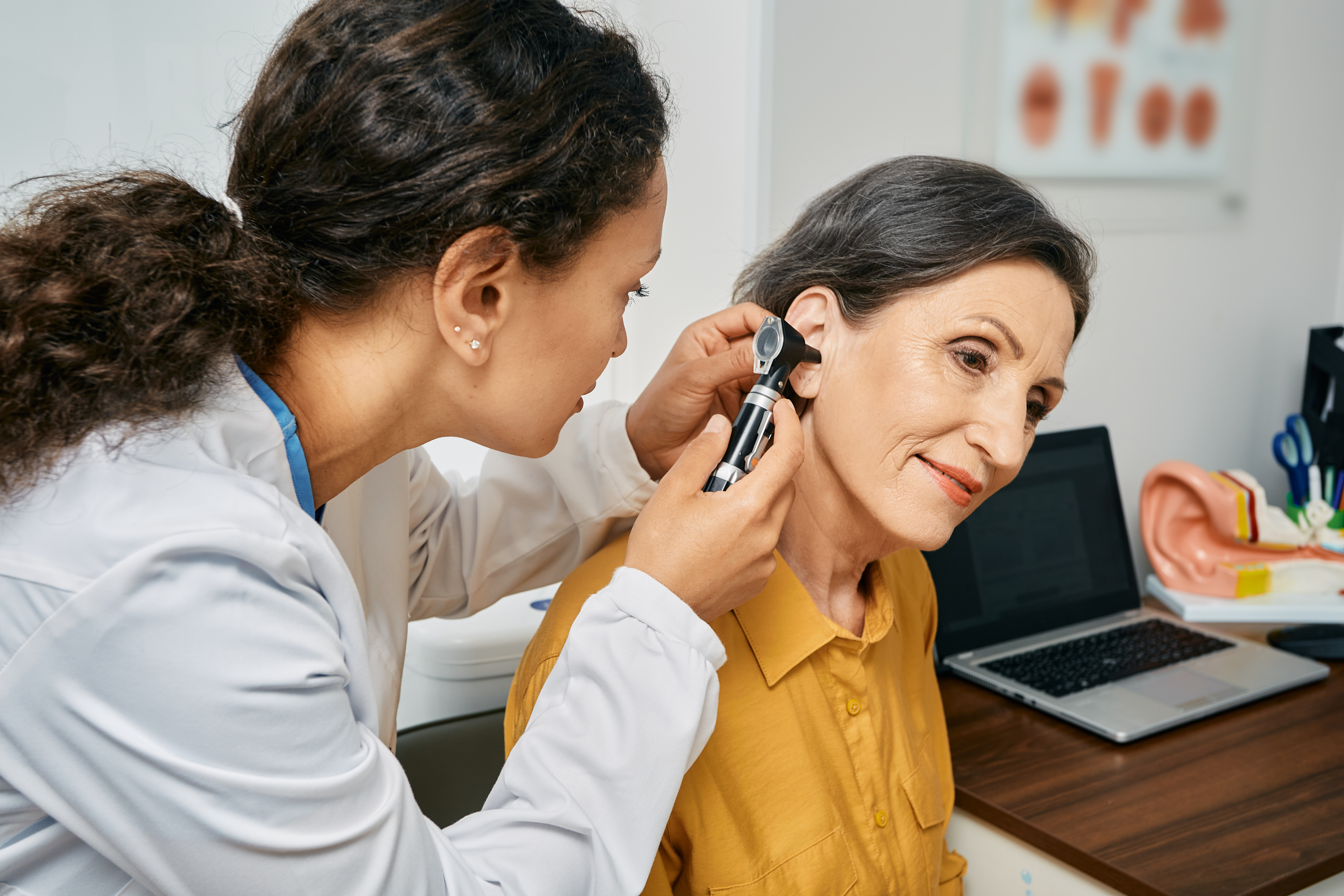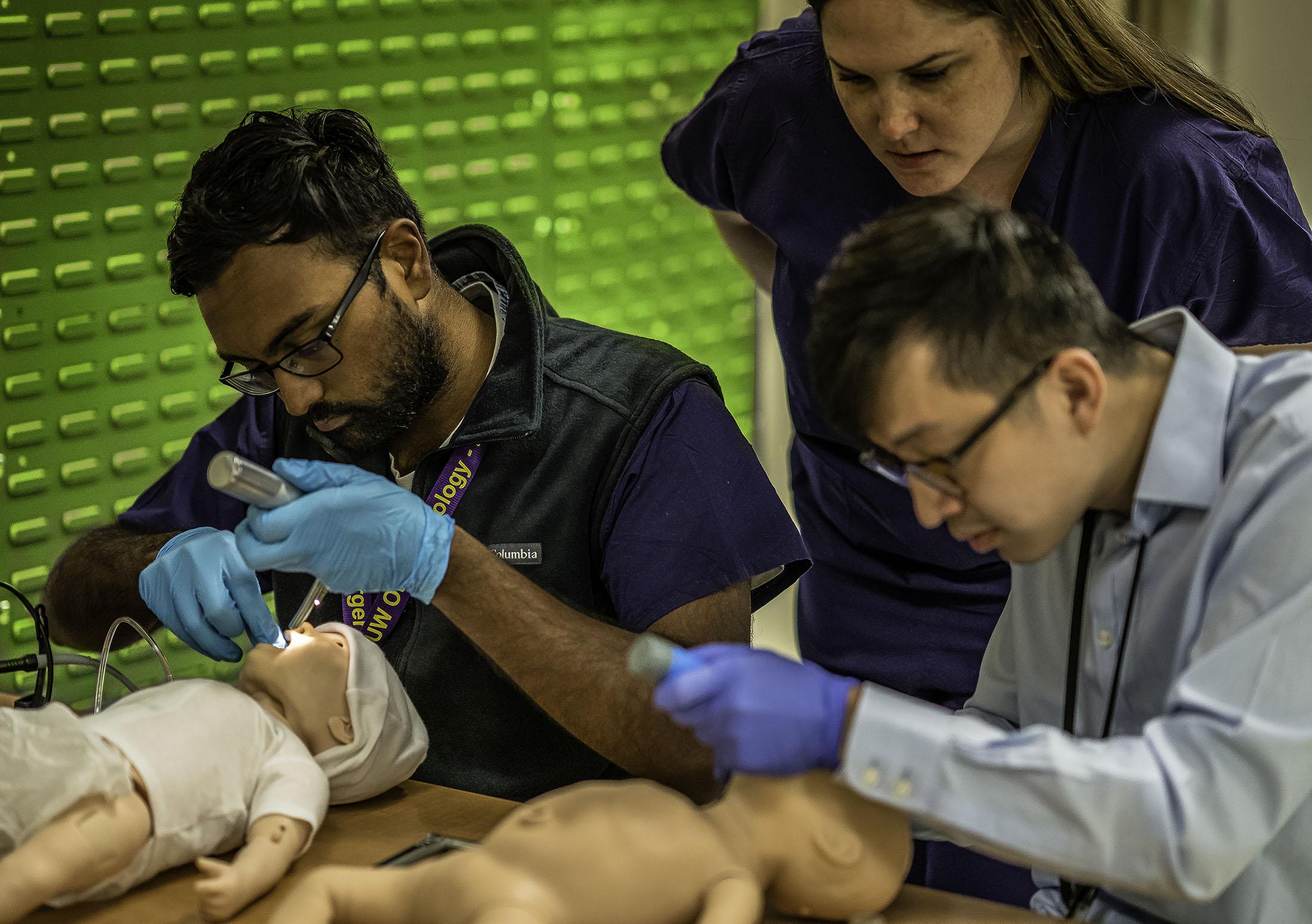Struggling Through Sinus Pain? Here's When to Call a Sinus Expert
Checking out the Field of Otolaryngology: What to Anticipate When You Speak With an ENT
Otolaryngology, frequently referred to as ENT, includes the medical diagnosis and therapy of nose, ear, and throat disorders. For those experiencing associated concerns, speaking with an ENT professional can provide clearness and relief. Comprehending what to expect throughout such consultations is crucial for effective interaction and care. This summary will certainly describe vital elements of the ENT experience, including typical reasons for sees and the processes included in medical diagnosis and therapy.

Comprehending Otolaryngology: An Overview
Otolaryngology, typically described as ENT (Ear, Nose, and Throat) medication, is a specific branch of medicine that focuses on the diagnosis and treatment of conditions influencing these vital areas of the body. This field incorporates a variety of problems, including those related to hearing, equilibrium, breathing feature, and speech. Otolaryngologists are educated to handle both surgical and medical treatments, utilizing advanced techniques and technologies. Their know-how extends beyond conventional disorders, attending to issues such as allergies, sinus infections, and hearing loss. Furthermore, they play an important role in the administration of head and neck cancers cells, offering complete treatment tailored to specific patient needs. In general, otolaryngology stays important for preserving wellness and lifestyle in affected people.
Usual Reasons to See an ENT Specialist
Many people seek the competence of an ENT specialist for a selection of reasons, showing the diverse nature of conditions that affect the nose, throat, and ear. Usual concerns consist of persistent sinus problems, which often causes persistent nasal congestion and facial pain. Allergies and their connected signs, such as itching and sneezing, likewise trigger sees to these experts (Sinus). Hearing loss, whether sudden or progressive, is one more substantial factor for consultation. Additionally, individuals may look for assessment for throat conditions, including consistent hoarseness or ingesting troubles. Sleep apnea, defined by disturbed breathing during sleep, is frequently addressed by ENT professionals also. Each of these conditions highlights the importance of specialized treatment in managing complex ENT-related wellness problems
Planning for Your ENT Visit
When preparing for an ENT appointment, it is vital to gather appropriate details and think about any specific issues. Patients should compile an in-depth case history, consisting of previous ear, nose, or throat problems, surgical treatments, and present drugs. Documenting symptoms-- such as severity, regularity, and period-- can offer important understandings for the ENT specialist. Additionally, people need to prepare a list of questions they desire to ask, guaranteeing that all concerns are dealt with throughout the see. Bringing along any appropriate medical records or examination outcomes can additionally help the ENT in recognizing the patient's condition. Ultimately, patients must confirm their appointment details, consisting of time, location, and day, to lessen any type of final confusion. Correct preparation can enhance the performance of the appointment and bring about better outcomes.
What to Expect Throughout the Examination
As the examination starts, the patient can expect to involve in a thorough conversation with the ENT specialist regarding their symptoms and clinical history. The professional will ask about the period, frequency, and intensity of symptoms such as hearing loss, nasal congestion, or sore throat. Additionally, the person's previous clinical hearing aid in spanish conditions, drugs, and any pertinent family members background will be evaluated, aiding the expert in forming a full understanding of the individual's health and wellness. The ENT may additionally inquire about way of life elements, such as exposure to irritants or irritants. This open dialogue establishes a foundation for the assessment, making sure that the patient's problems are resolved and setting the stage for any needed evaluations or suggestions for treatment.
Analysis Tests and Treatments in Otolaryngology
A variety of diagnostic examinations and treatments are essential in otolaryngology to precisely review and diagnose problems influencing the nose, throat, and ear. Common examinations consist of audiometry, which gauges hearing function, and tympanometry, assessing middle ear pressure. Nasal endoscopy allows visualization of the nasal flows and sinuses, while laryngoscopy examines the throat and singing cables. Imaging techniques, such as CT scans and MRIs, offer thorough sights of head and neck structures. Allergy testing might also be carried out to recognize triggers for sinus or respiratory issues. These diagnostic devices enable ENT specialists to establish a detailed understanding of patients' problems, making certain customized and effective administration strategies. Correct diagnosis is necessary for successful treatment results in otolaryngology.
Treatment Options Used by ENT Specialists
ENT experts provide a selection of treatment alternatives tailored to deal with details conditions impacting the nose, ear, and throat. These treatments range from conventional approaches, such as drug and way of living modifications, to even more invasive treatments. As an example, allergic reactions might be handled with antihistamines or immunotherapy, while chronic sinus problems could require nasal corticosteroids or sinus surgical treatment. For hearing loss, ENT professionals often suggest hearing aids or medical treatments like cochlear implants. In situations of throat disorders, alternatives can include speech therapy or surgical treatments to get rid of blockages. Additionally, they might provide support for managing sleep apnea, consisting of making use of CPAP tools or surgical interventions. Overall, the objective is to improve clients' quality of life via individualized treatment and efficient treatment approaches.
When to Seek Follow-Up Treatment With an ENT
When to look for follow-up treatment with an ENT specialist is essential for handling ongoing signs and symptoms or problems related to throat, ear, useful site and nose conditions, identifying. People should consider scheduling a follow-up appointment if symptoms linger in spite of initial therapy, such as chronic ear pain, nasal congestion, or throat discomfort. Adjustments in hearing, balance problems, or uncommon nasal discharge might additionally require additional examination. Furthermore, if a client experiences negative effects from prescribed medicines or has gone through a surgical procedure, follow-up treatment is essential to keep track of healing and address any kind of concerns. Timely consultations can assure effective administration of conditions, protect against possible problems, and offer tranquility of mind regarding one's health and wellness. Looking for follow-up care advertises positive health monitoring in otolaryngology.
Often Asked Questions

What Credentials Should I Search for in an ENT Expert?
When seeking an ENT expert, one should search for board qualification, appropriate experience, and solid patient reviews. In addition, effective interaction abilities and a compassionate method can considerably enhance the total therapy experience.
Just how Do I Choose the Right ENT for My Needs?
Choosing the right ENT specialist involves reviewing their certifications, experience, and client evaluations (ENT). It is essential to ponder their communication style and approach to therapy, guaranteeing they align with the person's details health and wellness requirements and choices
Are There Any Threats Linked With ENT Procedures?
The risks related to ENT procedures may consist of infection, blood loss, anesthesia issues, and potential damage to bordering frameworks. Individuals should talk about these threats with their medical professional to recognize individual worries and assurance notified decisions.
How Can I Handle Stress And Anxiety Before My ENT Appointment?
To handle anxiousness before a visit, individuals can practice deep breathing exercises, imagine favorable results, prepare inquiries beforehand, and look for assistance from good friends or family, fostering a feeling of peace of mind and peace.
What Should I Do if I Experience Negative Effects From Therapy?
If side effects from treatment take place, the person should promptly report them to their doctor. Modifications to treatment or added treatments may be necessary to assure safety and security and efficiency in handling their condition - Otorrinolaringologia. As the consultation starts, the person can anticipate to engage in a detailed discussion with the ENT expert about their signs and symptoms and medical background. These diagnostic tools make it possible for ENT experts to create a complete understanding of individuals' conditions, making certain tailored and efficient monitoring strategies. ENT experts offer a range of therapy alternatives tailored to resolve specific problems impacting the ear, throat, and nose. When seeking an ENT visit site specialist, one must look for board accreditation, appropriate experience, and strong individual testimonials. Picking the right ENT specialist includes examining their certifications, experience, and person testimonials